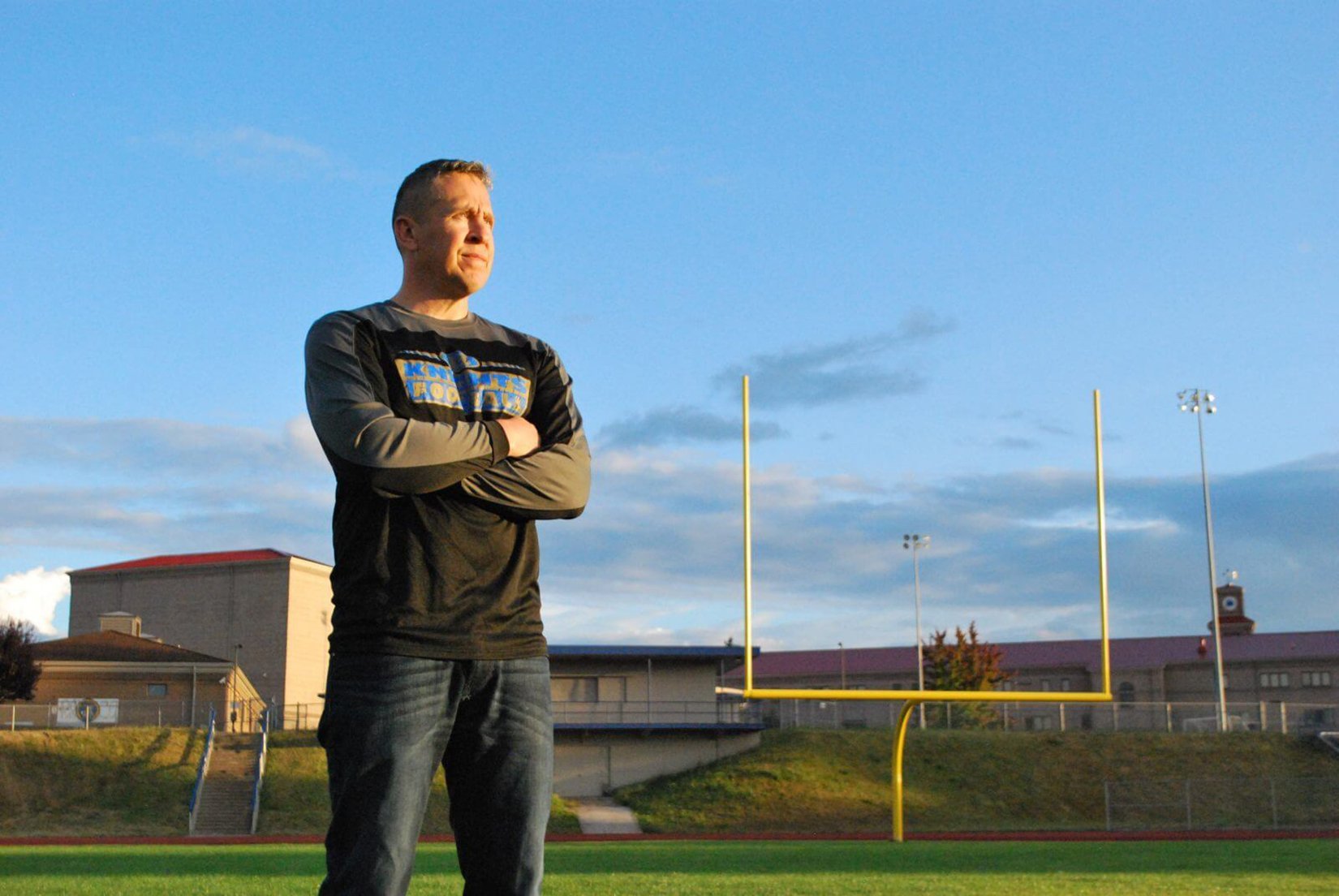
WASHINGTON — Joseph Kennedy, the high school assistant football coach who lost his job after praying on the field with players after games, then won it back in a Supreme Court ruling, just resigned, a week after the season’s first game.
After submitting his resignation from Bremerton High School in Washington state to school district officials Sept. 6, he announced his decision on his website, saying one of his reasons for leaving was to care for a family member out of state.
“I believe I can best continue to advocate for constitutional freedom and religious liberty by working from outside the school system, so that is what I will do,” Kennedy explained. “I will continue to work to help people understand and embrace the historic ruling at the heart of our case. As a result of our case, we all have more freedom, not less.”
The 54-year-old coach, who with his wife has lived in Florida for the past three years, is writing a book about his experience, “Average Joe: The Coach Kennedy Story,” to be published in late October and a movie about his life is currently in pre-prodJoseph uction.
He said his experience demonstrates “we must make a stand for what we believe in” including the “right to express our faith as we see fit.”
But in his resignation letter, obtained by the Seattle Times, Kennedy said his job reinstatement, ordered by the Supreme Court, “will not be fully followed,” adding that he experienced “a series of actions meant to diminish my role and single me out in what I can only believe is retaliation by the school district.”
After being placed on leave eight years ago, he was reinstated in March to his former coaching role. He also won a nearly $2 million settlement that the Bremerton School District agreed to for Kennedy’s attorney fees. He resumed coaching when the team’s practices started on Aug. 16.
The Bremerton School District confirmed in a statement that Kennedy had submitted his resignation and that it would not comment on personnel matters.
Last year, he won his case before the Supreme Court, which ruled that the free exercise and free speech clauses of the First Amendment protected Kennedy’s prayer with the players as an individual engaging in religious expression.
The Supreme Court’s ruling on this case emphasized that “respect for religious expressions is indispensable to life in a free and diverse republic — whether those expressions take place in a sanctuary or on a field.”
Kennedy claimed that his postgame prayers on the field cost him his job. He said he had been told by school district officials to stop praying on the 50-yard line, and he refused. When his contract was not renewed, he sued the school for violating his First Amendment rights.
During oral arguments, several justices emphasized that private speech is still private, and protected by the First Amendment, even if it takes place on public grounds. But others pointed out that private prayer on the field also could seem coercive because players could feel like they should participate.
An attorney for the school district argued that the coach’s prayers violated the Constitution’s establishment clause, which is often cited to prohibit prayer in public schools.
Cardinal Timothy Dolan, chairman of the U.S. Conference of Catholic Bishops’ Committee for Religious Liberty, said the ruling “to prevent the forced expulsion of voluntary prayer from public life is a major victory.”
After the school’s first game, and victory, Sept. 1, The Associated Press reported that Kennedy walked to midfield alone and knelt and prayed for about 10 seconds, not joined by any of the players or spectators. There was scattered applause from the small crowd.
Prior to the game, the coach said he had mixed feelings and wasn’t sure he’d keep coaching.
“Knowing that everybody’s expecting me to go do this kind of gives me a lot of angst in my stomach,” Kennedy told the AP. “People are going to freak out that I’m bringing God back into public schools.”
